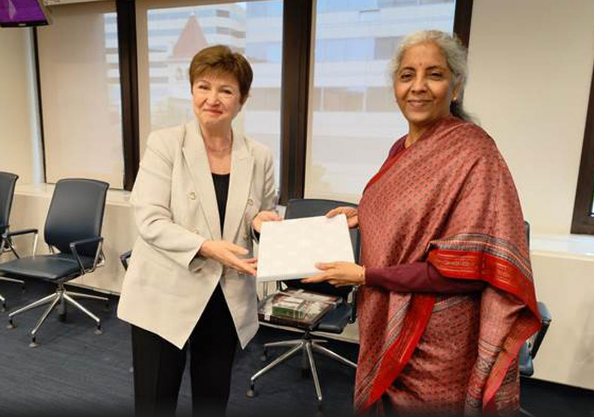Free Courses Sale ends Soon, Get It Now


Free Courses Sale ends Soon, Get It Now



Copyright infringement is not intended
Context: Finance Minister Nirmala Sitharaman met IMF managing director Kristalina Georgieva and discussed a range of issues, including impact of geopolitical situation on global growth.
More about news:
Annual spring meetings
About International Monetary Fund (IMF):
Role of IMF:
Functions of IMF:
IMF Quota:
Organization structure of IMF:
|
Structure of the International Monetary Fund (IMF) |
|
|
Governing Bodies of IMF |
Roles and Responsibilities |
|
Board of Governors |
· Each governor of the Board of Governors is appointed by his/her respective member country. · Elects or appoints executive directors to the Executive Board. · Board of Governors is advised by the International Monetary and Financial Committee (IMFC) and the Development Committee. · An annual meet up between the Board of Governors and the World Bank Group is conducted during the IMF–World Bank Annual Meetings to discuss the work of their respective institutions. |
|
Ministerial Committees
|
· It manages the international monetary and financial system. · Amendment of the Articles of Agreement. · To solve the issues in the developing countries that are related to economic development. |
|
Executive Board |
· It is a 24-member board that discusses all the aspects of the Funds. · The Board normally makes decisions based on consensus, but sometimes formal votes are taken. |
Published Reports:
https://www.thehindu.com/business/Economy/nirmala-sitharaman-meets-imf-chief-discusses-impact-of-geopolitical-situation-on-global-growth/article65334389.ece
© 2024 iasgyan. All right reserved